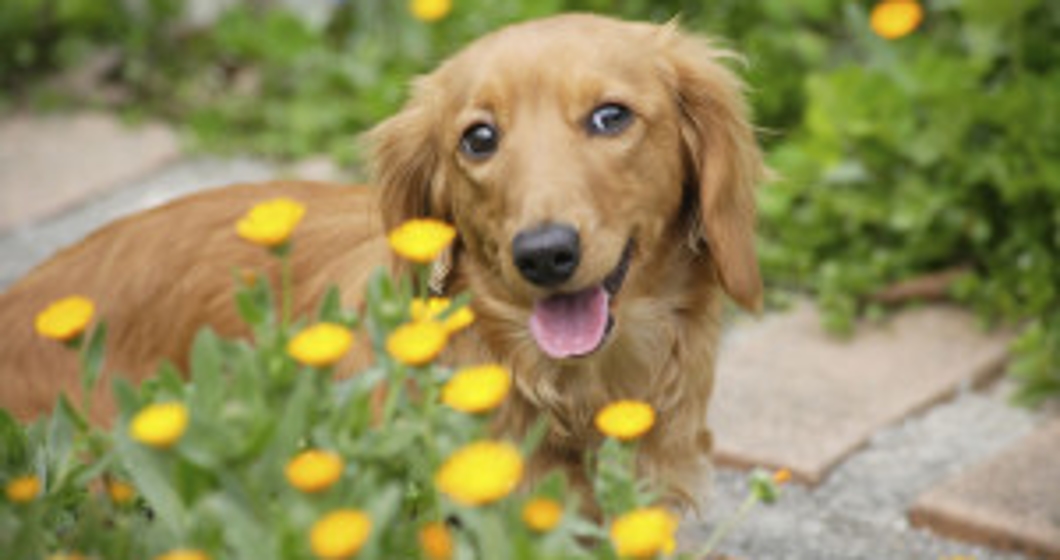If you're a pet parent in Northeast New Jersey, you know how much your furry companion means to your family. But even the most loving dog owners can overlook one major hazard that’s often hiding in plain sight: your plants. Whether it's a bright bouquet in the living room or a leafy shrub in the backyard, many common plants can be toxic to dogs.
In this post, we’re diving into the plants that pose the biggest risks to your pup—both indoors and out—plus what Northeast New Jersey pet owners can do to keep their dogs safe year-round.
Common outdoor plants that are toxic to dogs
Here in Northeast New Jersey, our seasonal landscapes can include everything from lush spring flowers to vibrant fall foliage. But while that color is beautiful, it can be dangerous if your dog is prone to sniffing and nibbling. Some common outdoor plants in our region that are harmful to dogs include:
1. Azaleas
These beautiful shrubs are popular in many Northeast New Jersey gardens, but even a few leaves can cause vomiting, diarrhea, and in severe cases, heart issues in dogs.
2. Daffodils
A springtime staple, daffodils may brighten your yard but contain lycorine, which is toxic to dogs and can lead to stomach pain, vomiting, and respiratory issues.
3. Foxglove
This dramatic-looking plant is highly toxic. It can affect your dog’s heart and cause tremors, seizures, and even death if ingested.
4. Hydrangeas
Widely used in landscaping across New Jersey, hydrangeas contain cyanogenic glycosides, which can lead to gastrointestinal upset.
5. Yew shrubs
A common evergreen in Northeast New Jersey yards, all parts of the yew plant (except the flesh of the berries) are highly toxic to dogs and can be fatal.
If you’re landscaping your yard or taking your dog on neighborhood walks, it’s essential to be aware of what’s growing nearby.
Indoor plants that could be harming your dog
Sometimes the danger isn’t in your backyard—it’s right in your living room. Many houseplants that are sold at local nurseries or grocery stores in Northeast New Jersey are toxic to pets. Watch out for these common culprits:
1. Pothos (Devil’s Ivy)
Pothos is low-maintenance, but highly toxic. It can cause oral irritation, excessive drooling, and vomiting.
2. Peace lilies
While not a true lily (which are more dangerous to cats), peace lilies can still cause irritation and stomach upset in dogs.
3. Snake plants (Mother-in-law’s Tongue)
Another trendy and easy-care plant, but this one contains saponins, which can lead to nausea and vomiting in dogs.
4. Aloe vera
It’s great for human sunburns but not so much for your dog’s digestive system. Aloe ingestion can cause vomiting and diarrhea.
5. ZZ plant
Tolerant of low light and low water, the ZZ plant is popular in Northeast New Jersey homes but is toxic to both dogs and cats if chewed.
Before bringing home a new houseplant, it’s worth taking a few minutes to Google its safety for pets or check the ASPCA’s list of toxic and non-toxic plants.
How to keep your dog safe from harmful plants
If you’re feeling overwhelmed by the number of toxic plants out there, you're not alone. Many Northeast New Jersey dog owners don’t realize their plants could be dangerous until their dog gets sick. The good news? A few proactive steps can go a long way in keeping your pup safe.
1. Know what’s in your yard
Take a weekend to walk through your yard and identify what plants are growing. If you’re unsure, use plant-identifying apps or consult a local garden center. Remove any known toxic plants or put up fencing to keep dogs out.
2. Use raised beds or planters
If you want to keep plants around but out of your dog’s reach, elevated planters or hanging baskets are a good compromise—especially indoors.
3. Train your dog not to chew plants
Work on basic training cues like “leave it” to deter your dog from chewing unfamiliar plants during walks or playtime.
4. Stay vigilant on walks
In Northeast New Jersey’s parks and neighborhoods, your dog may come across landscaping plants that are toxic. Keep an eye out, especially during spring and summer when new plants are in bloom.
5. Have emergency resources ready
Save the number for your local emergency vet and the ASPCA Animal Poison Control Center (888-426-4435). If you think your dog may have eaten something toxic, time is critical.
Final thoughts for Northeast New Jersey dog lovers
Being a dog parent in Northeast New Jersey means being prepared for everything—from unpredictable weather to hidden hazards in your garden. Harmful plants may not seem like a big threat, but for curious pups, they can lead to real emergencies.
At DoodyCalls of Northeast New Jersey, we care deeply about keeping our community’s pets safe and happy. Whether we’re cleaning up your yard or sharing important safety tips like these, our goal is to make life just a little easier—and safer—for you and your dog.
If you have questions about keeping your yard dog-friendly or want help managing pet waste, reach out to DoodyCalls of Northeast New Jersey today. We’re always here to help!


